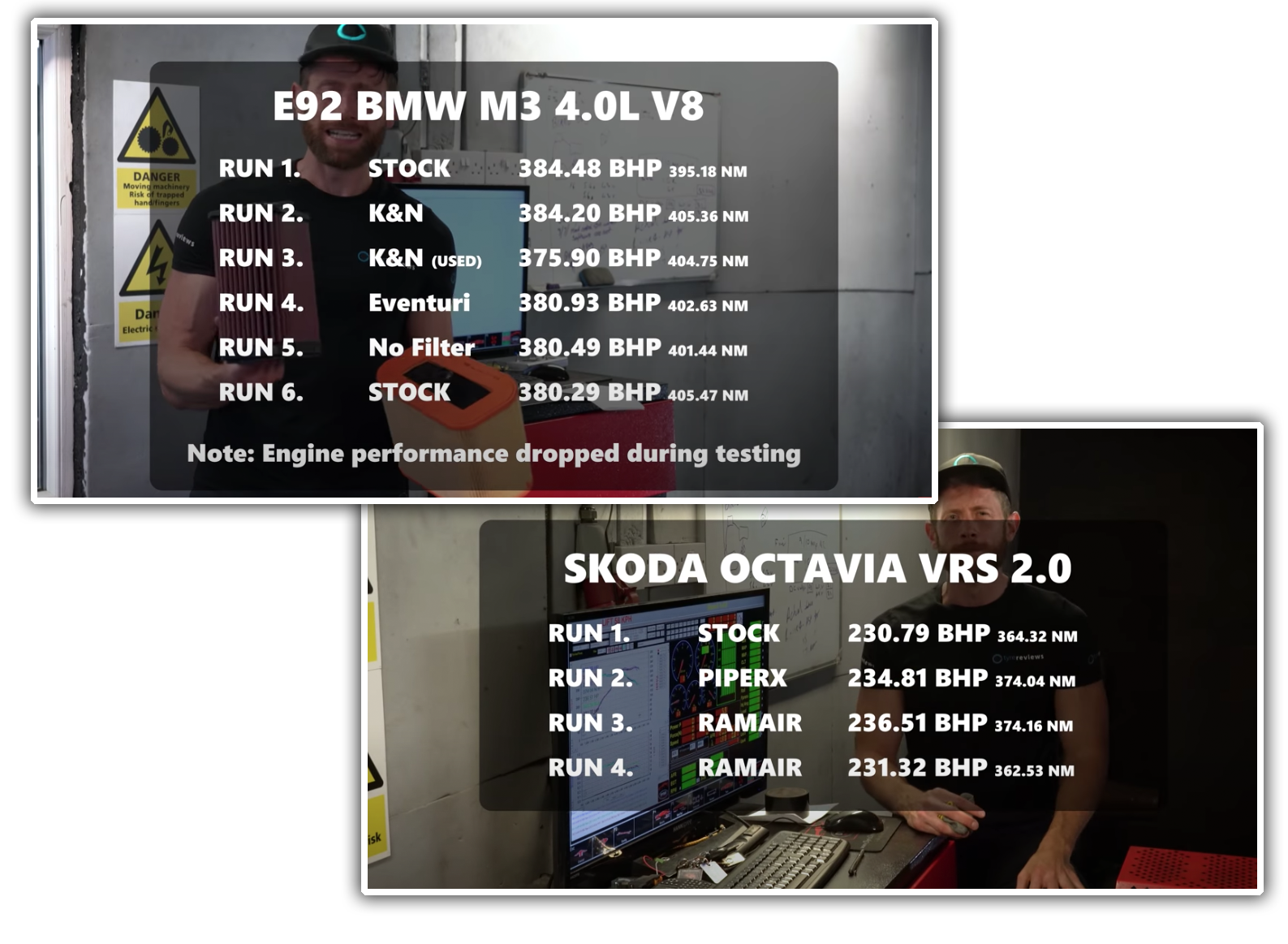This is one of those things I suspect all of us have wondered about at some point or another — does changing the air cleaner on your car actually give you the power boost you’re hoping for? I mean, it seems to make sense — let the engine breathe easier, it should make more power, right? Just like a horse with freshly-cleaned nostrils. But do they really work? Thankfully, this charming British fellow with access to a dyno, a couple of cars, and a bunch of aftermarket air cleaners decided to check and see.
Not surprisingly, he’s not the first to do this, as our pal Jason over at Engineering Explained did a similar video a couple of years back. I’ll let you see them both and, really, there’s likely even more. But that’s good because this is interesting.
The first video is on a channel called Tyre Reviews. This little break from tyres is welcome because the comparison setup for air cleaners is pretty good here: nine air cleaner types, tested on two cars, one a naturally-aspirated BMW V8, and the other on a 2-litre turbo-four, a VW Group TSI engine, in this case, fitted into a Skoda.
Here’s the full video:
If you’re impatient, here’s a screengrab of the results:

So, there really wasn’t any benefit to aftermarket air filters on the BMW V8 — the stock setup worked best, and the only big change came from using a dirty filter, and that wasn’t a good change. Also, the engine performance dropped about 4kW during testing overall, because, uh, engineering?
Now, the Skoda’s TSI engine was a different story — the aftermarket air cleaners did add between three and five kW, and the reason for the two runs of the RamAir was that one run left off the heat shield, which drew hot engine bay air into the intake, which caused a performance loss.
That’s a good lesson right there — you don’t want to be sucking in lower-density hot air!
The Engineering Explained video does real-world, on-road acceleration tests as well as dyno tests, which is good since most of us don’t drive on a dyno to work every day.
A good finding here is that the clean stock filter vs a dirty stock filter gave a maximum of about 1.5kW more, though on average it was basically the same. Jason did find that the K&N filter gave about 3kW more, which is like, almost four Changlis.
As always, the Engineering Explained video gives all kinds of good information, and it looks like the acceleration tests do actually match the improvements seen on the dyno.
Changing your air cleaner is by far one of the cheapest and easiest modifications you can make to your engine, and it looks like, at least based on these tests, smaller, modern turbocharged engines do get a bit of a performance improvement, between, oh, three to five horsepower or so?
For as easy a mod this is, that’s not too bad!
